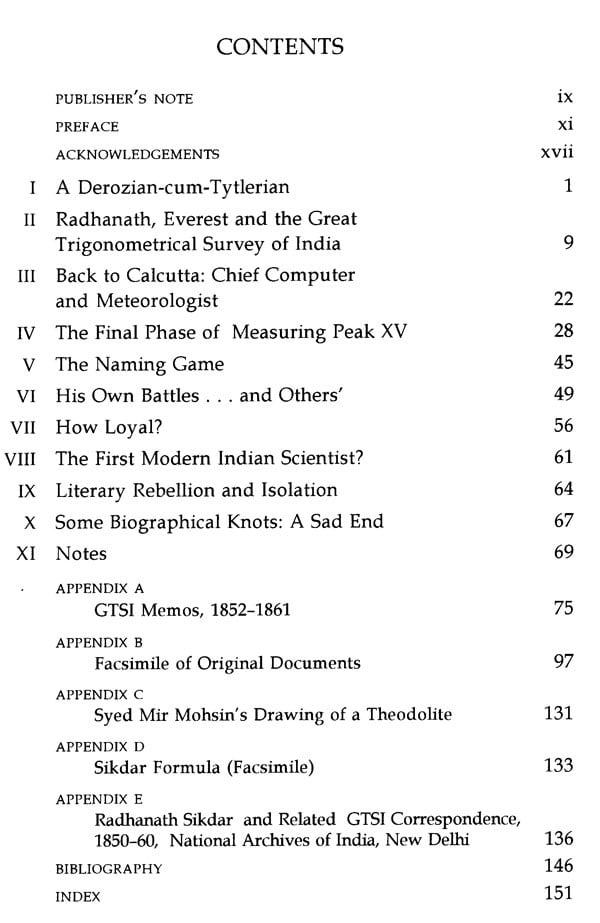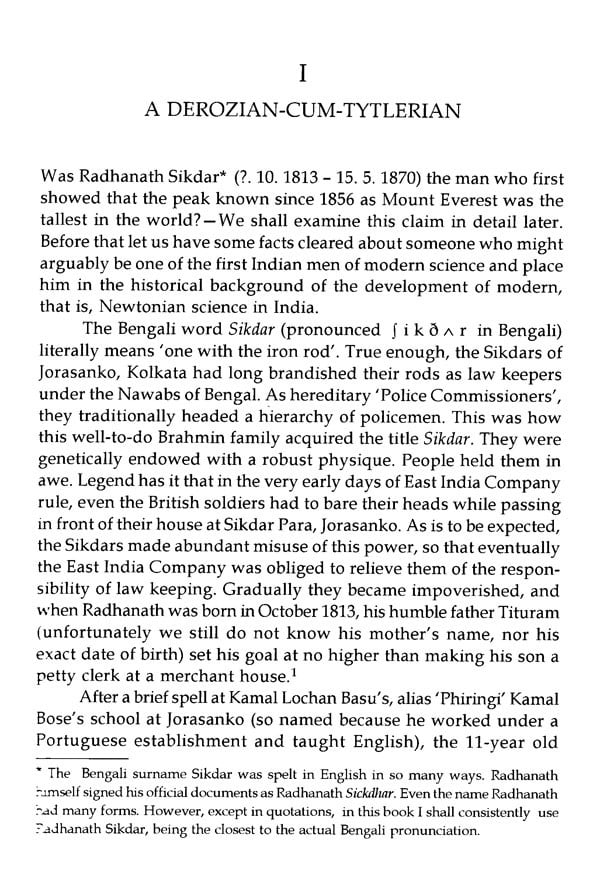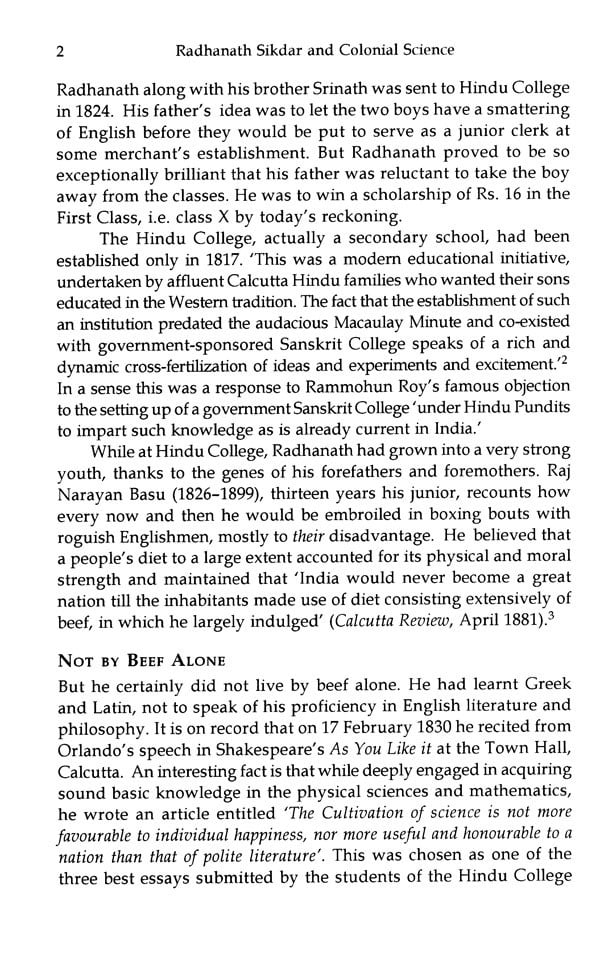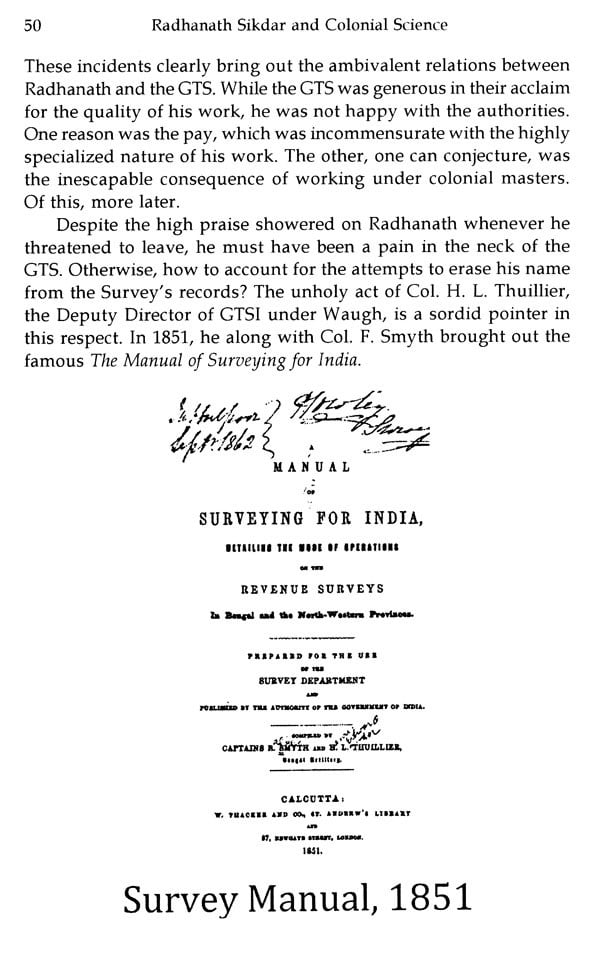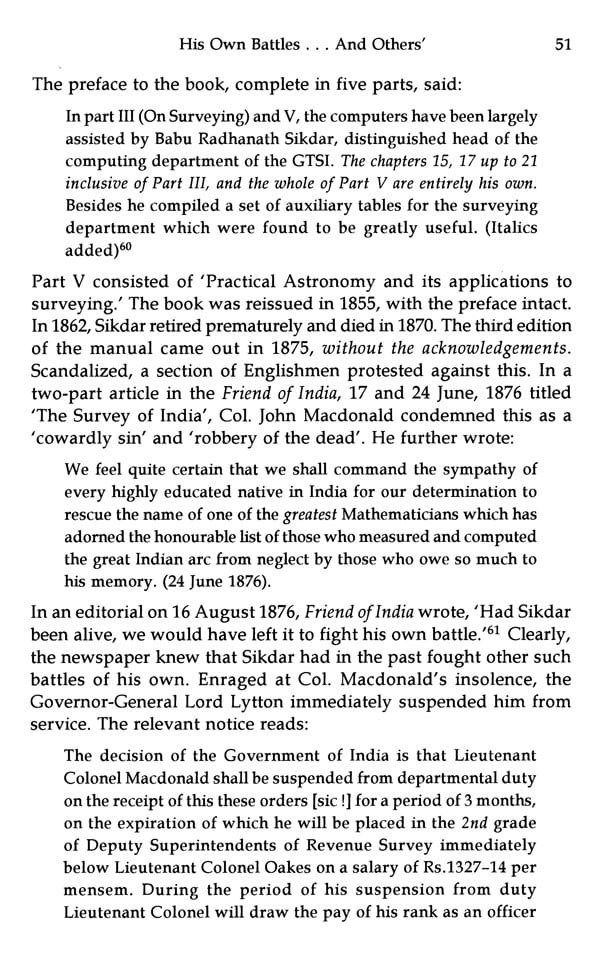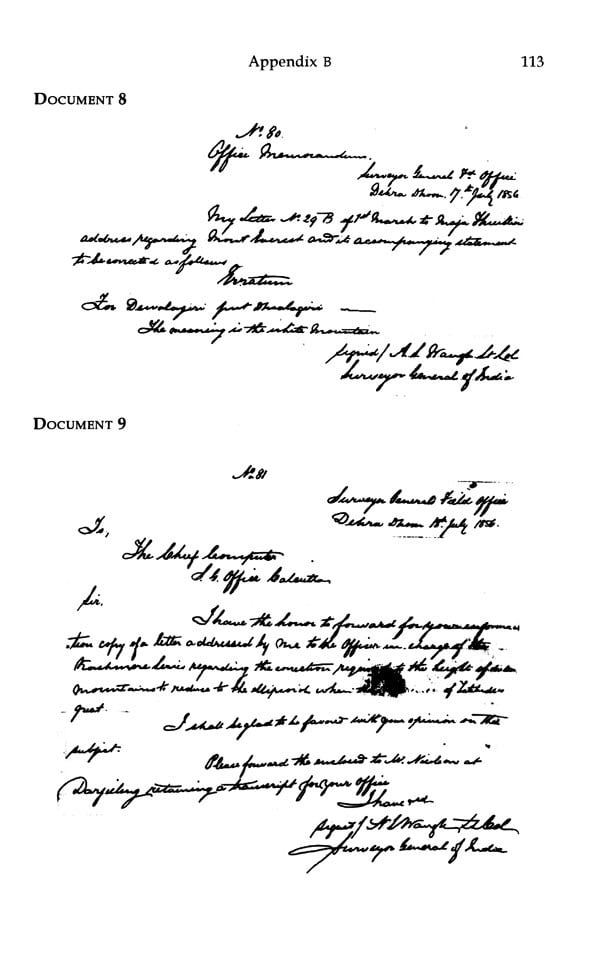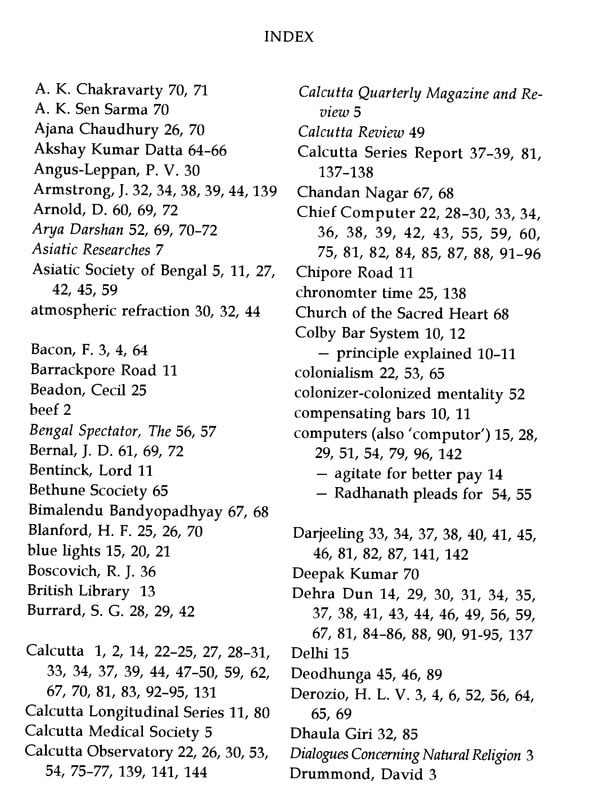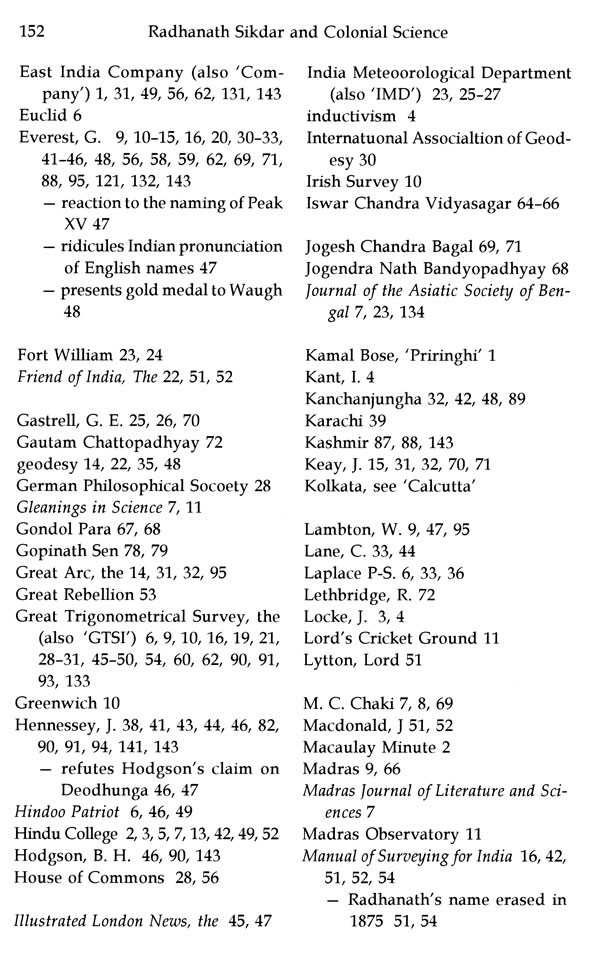
Radhanath Sikdar and Colonial Science (An Indian Surveys an Uncharted Terrain)
Book Specification
| Item Code: | NBZ807 |
| Author: | Ashish Lahiri |
| Publisher: | Sahitya Samsad |
| Language: | English |
| Edition: | 2016 |
| ISBN: | 9788179552780 |
| Pages: | 180 |
| Cover: | HARDCOVER |
| Other Details | 9.50 X 6.15 inches |
| Weight | 430 gm |
Book Description
Based on first-hand research sponsored by the History of Science wing of the Indian National Science Academy, New Delhi, this book objectively examines the special role played by Radhanath Sikdar (1813-1870) in calculating the height of Mount Everest. It also brings out the dichotomy of colonial science': Sikdar had to fit himself to the early colonial scheme of the rulers and to “self-cultivate' his curiosity-driven scientific expertise from within that structure. Whenever the latter clashed with the former, his aspirations were thwarted.
A major attraction of the book is the bunch of original hand-written 'Great Trigonometrical Survey of India' memos of the period 1851-1862, recovered from the National Archives of India, New Delhi. These historic documents, in facsimile, are being printed for the first time in more than 150 years. A fitting tribute to Radhanath Sikdar, who would have been 203 years in October 2016.
Ashish Lahiri (Asish Kumar Lahiri) (b. 1948) is a writer, translator, lexicographer and an independent researcher in History of Science, specializing in science-culture interface.
Associated with the teaching of History of Science at the Asiatic Society, Kolkata and the National Council of Science Museums, Kolkata, Lahiri is well known for his Bengali translation of J. D. Bernal's magnum opus Science in History.
He has translated into Bengali books by Amartya Sen, Bipan Chandra and Ram Chandra Guha. Writer of a number of books on subjects like Science in Nineteenth Century Bengal, Philosophy of Science and Karl Popper, Science and Ideology, Tagore and Science, he received the Rabindra Puraskar (2010), Brajendranath Bandyopadhyay Puraskar (by Bangiya Sahitya Parishat, 2011), and the Ananda Puraskar (2001).
This book sort of built itself up. Like any other Bengali bhadralok of my generation, I had been brought up to revere Radhanath Sikdar in a rather misty manner as the underdog in the story of the measurement of Mount Everest, with Everest as the villain. However, very little by way of concrete evidence was ever available. As a result, Radhanath Sikdar had become primarily an anecdotal object in educated Bengali circles. One example. The great Bengali humorist Saiyad Muztaba Ali in his classic Deshe Bideshe (At Home and Abroad, 1948), describing his stint in 1928 as a teacher in turbulent Kabul, brought in Radhanath Sikdar as a nationalist icon. While waiting at Peshawar for the bus for Kabul, he narrated to his friends how since 1843 Sir George Everest had been ‘happily drawing his pension at London' when in the 1850s work on measuring Peak XV was going on. Thunderstruck, his friends ejaculated, 'You mean the sahib didn't even officially supervise the venture?' When Muztaba answered in the negative, one of them said, ‘Now we understand why Bengalis hurl bombs at sahibs!' Muztaba was quick to respond that Sikdar, of course, did not throw bombs at Sir George. To which his Peshawari friends angrily retorted, ‘But he should have!' Humorous, poignant and nationalistically uplifting no doubt; but not of much help when it comes to scientific investigation.
At another end there is the extreme effect of the 'twoculture' divide. I have heard it discussed in learned literary Bengali circles that somehow Sikdar must have managed to devise and use a very very long tape to measure the peak and therein lay his greatness! As a sympathizer of the people's science movement and a rationalist, I had often wondered how to dispel such'airy nonsense' from our minds, but was thwarted by lack of facts.
**Contents and Sample Pages**
